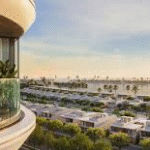Now Reading: UAE’s Gen Z Is Redefining Shopping, One Small Store at a Time 2025
-
01
UAE’s Gen Z Is Redefining Shopping, One Small Store at a Time 2025
UAE’s Gen Z Is Redefining Shopping, One Small Store at a Time 2025

Table of Contents
UAE In a country known for its world-famous shopping malls, a quiet shift is taking place. Across Dubai, Abu Dhabi, Sharjah, and beyond, Gen Z shoppers are moving away from sprawling retail centers in favor of smaller, locally owned shops. This generational shift is changing the retail landscape of the UAE and signaling deeper values among younger consumers.
This new preference isn’t just about fashion or convenience. It’s a reflection of Gen Z’s evolving mindset around sustainability, individuality, digital culture, and community connection. From vintage clothing boutiques in Al Quoz to eco-friendly skincare kiosks in Abu Dhabi, the small shop movement is gaining ground and fast.
A Generational Shift in Shopping Habits

Gen Z—defined as those born between 1997 and 2012 represents a unique cohort raised on smartphones, social media, and instant digital access. Unlike millennials who grew up visiting malls as a weekend activity, Gen Z approaches shopping with different expectations.
They don’t just want to buy things. They want a story, a purpose, and a connection behind each purchase. In a 2024 UAE Youth Retail Survey, 67% of Gen Z respondents said they prefer to support local businesses over global chains. The top reasons? “Authenticity,” “eco-conscious values,” and “a unique product experience.”
This is a stark contrast to previous generations who viewed malls as status symbols. Today, large malls are often seen by Gen Z as repetitive, commercialized, and lacking personality.
What Small Shops Offer That Malls Can’t
So what exactly are small businesses offering that malls are not? According to young UAE shoppers, the differences are clear:
- Personalized Experience – Small shop owners often remember their customers, offer styling tips, and build lasting relationships. This human touch matters more than ever in an age dominated by digital screens.
- Unique and Custom Products – Unlike global chains that offer mass-produced items, local stores often sell limited edition, handmade, or vintage pieces that help Gen Z stand out from the crowd.
- Sustainable Practices – Many small shops in the UAE use recycled packaging, sell upcycled clothing, or source ethical materials—traits that matter deeply to Gen Z.
- Support for Local Entrepreneurs – Shopping small means supporting young Emirati artists, designers, and start-ups. Gen Z values this kind of community support over funding international giants.
The Rise of Local Marketplaces and Pop-Up Culture
A visible reflection of this trend is the boom in local markets and weekend pop-ups. Areas like Alserkal Avenue in Dubai, Al Zahia in Sharjah, and Yas Bay in Abu Dhabi are becoming hot spots for alternative shopping experiences.
Here, visitors can find everything from homemade candles and natural skincare to hand-painted sneakers and crochet bags. These events are often shared widely on TikTok and Instagram, helping brands go viral without ever setting foot in a traditional mall.
These creative retail spaces offer more than just products they offer an experience. Live music, food trucks, art installations, and DIY stations create a vibe that resonates deeply with the Gen Z crowd.
Social Media: The New Mall Directory
Gen Z doesn’t need a mall map they have social media. Many discover their favorite small brands through TikTok trends, Instagram reels, and YouTube vlogs. Influencers and micro-creators regularly spotlight “hidden gems” in the UAE, driving foot traffic to small shops that would otherwise go unnoticed.
Shop owners are also becoming savvy with online presence. Some use platforms like Threads, Instagram, and even WhatsApp Business to communicate with customers, launch product drops, and manage bookings all without paying heavy rents like traditional mall stores.
This mobile-first shopping culture is fast, fun, and hyperlocal and it’s one big reason small shops are thriving.
What It Means for Malls
While malls in the UAE aren’t going away anytime soon, their role is evolving. Retail experts say malls need to adapt quickly to meet Gen Z expectations. This might mean offering more local vendor spaces, rotating pop-up slots, or community-based workshops.
Some malls are already trying to pivot. The Dubai Mall and Mall of the Emirates have introduced local concept stores and creative zones. However, these moves may be too little too late if they don’t align with Gen Z’s values around ethics, community, and individuality.
Challenges for Small Shops

Despite growing popularity, small business owners still face challenges. High rental costs, competition from e-commerce giants, and inconsistent foot traffic can all pose risks. Yet, many young entrepreneurs are finding ways to keep going often by combining physical stores with strong digital strategies.
Moreover, government programs like the Khalifa Fund and Dubai SME are helping youth-led brands gain access to funding, mentorship, and legal support. This backing is crucial as the UAE attempts to diversify its economy and support young innovators.
Final Thoughts: A Culture-Driven Shopping Revolution
Gen Z in the UAE is doing more than just shopping differently they’re reshaping what consumerism means in the region. For them, it’s not just about buying, but about belonging, expressing, and doing better.
The rise of small shops and independent brands marks a broader cultural change one that favors sustainability over speed, values over volume, and meaning over marketing.
Read More:- Shobha Realty Launches Its Most Luxurious Project Yet—Full Details Inside 2025






















